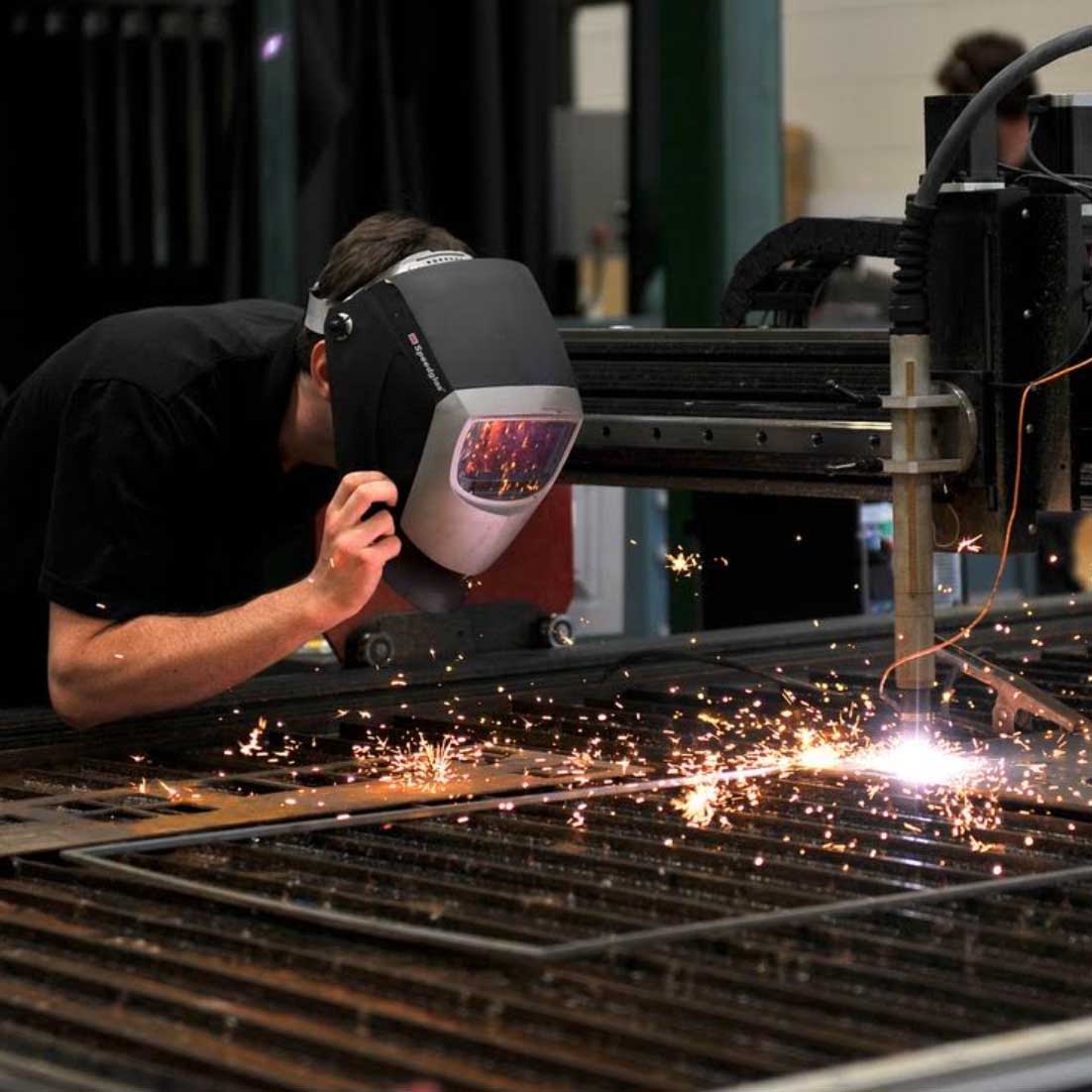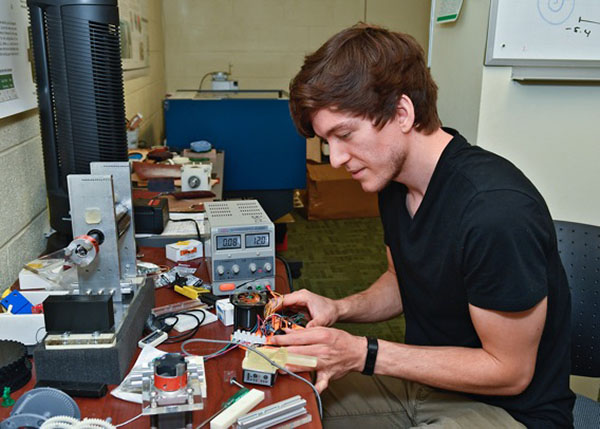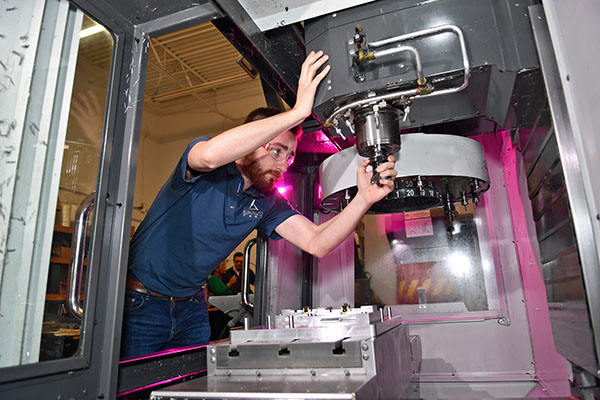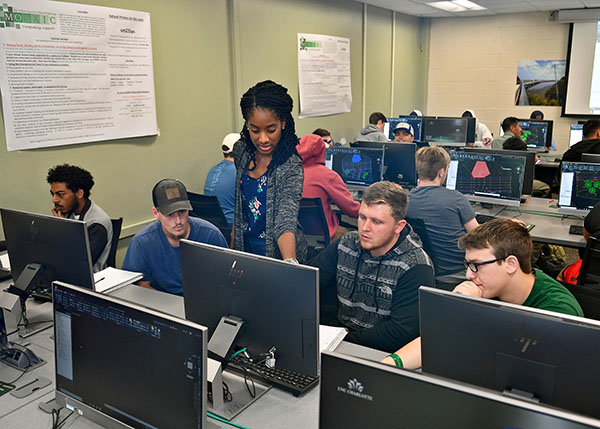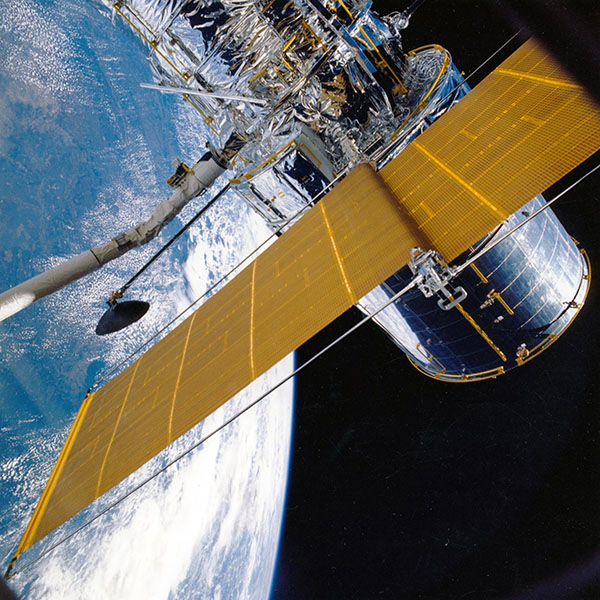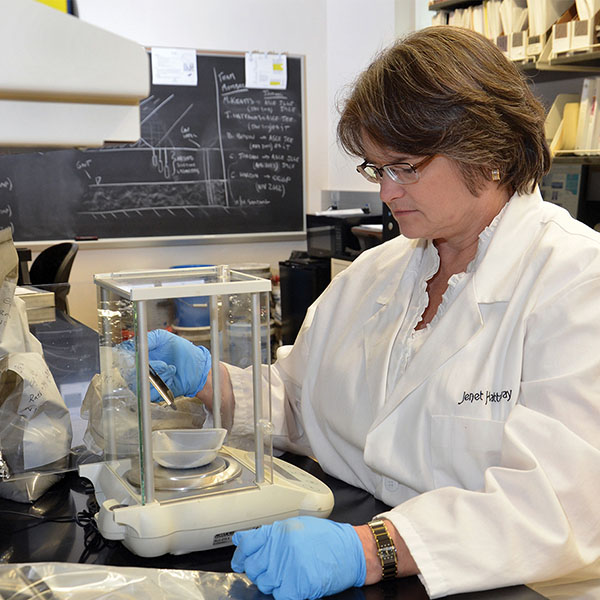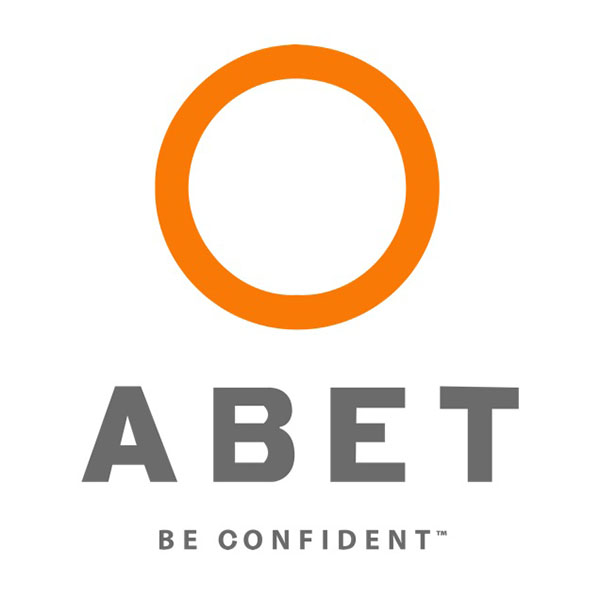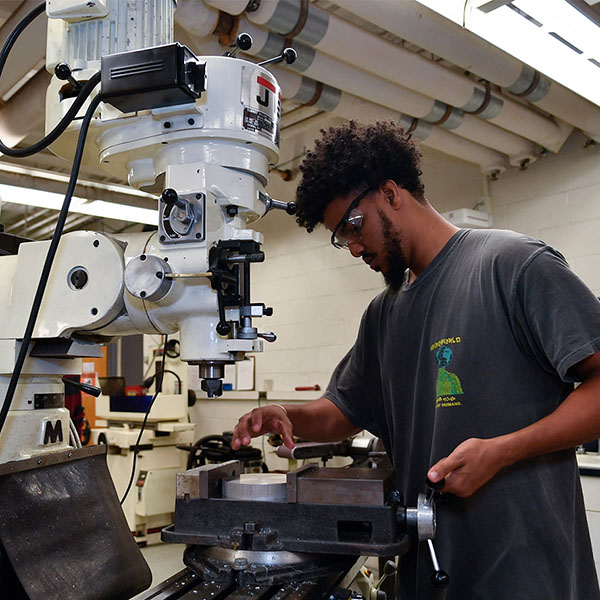Why Unc Charlotte Is Your Destination For Engineering The Future
As an engineering hub for energy, manufacturing, automotive, microelectronics, transportation, construction, environmental and biotechnology industries, North Carolina relies on strong engineers to move it forward. As one of the top engineering programs in North Carolina, the William States Lee College of Engineering practices learning by doing, often in partnership with industry leaders. UNC Charlotte engineering students prepare themselves to take on engineering challenges that will shape the future of North Carolina, the country and the world.
Civil & Environmental Engineering
Civil engineers and environmental engineers work with some of our planet's most basic building blocks to develop new uses and applications. They are builders, designing and constructing skyscrapers, bridges, roads and even entire cities – while also solving some of our planet's most serious problems, such as environmental pollution, aging infrastructure, need for alternative energy sources and overcrowded transportation systems.
Career Fields:
- Civil Engineering
- Urban Planning
- Environmental Engineering
- Architectural Management
- Transportation Engineering
- Power Systems Structural Analyst
- Environmental Impact Consulting
- Geotechnical Engineering
Electrical & Computer Engineering
The work of electrical and computer engineers touches almost all aspects of modern technology — from developing alternative energy sources and smart grids, to microscopic circuits on the chip of a laptop computer. Electrical and computer engineers are innovators in research, development, design, testing, manufacturing and operation of new and complex technologies like nuclear power reactors or even small robots.
Career Fields:
- Computer Hardware Engineering
- Alternative Energy Systems
- Energy Efficiency Engineering
- Software Development
- Network Engineering
- Robotics Engineering
- Electrical Design
- Microelectronics
- Optoelectronics
Mechanical Engineering & Engineering Science
Mechanical engineering impacts technology of the past, present and future — from the early manufacturing of Model Ts, to the launching of today's International Space Station, to the development of tomorrow's alternative energy sources. The traditional mechanical components of machinery and manufacturing are now being altered with new developments in superconductivity, precision engineering, robotics and energy conversion.
Career Fields:
- Motorsport Engineering
- Energy Efficiency Engineering
- Automotive Engineering
- Aerospace Engineering
- Biomechanical Engineering
- Manufacturing Engineering
- Materials Engineering
- Power Distribution Consulting
Industrial and Systems Engineering
To succeed in today’s changing global business environment, organizations need professionals who can integrate engineering and business operations. Industrial and Systems Engineering graduates do this by incorporating both fields in design, production, manufacturing, logistics, sales and service. These professionals graduate with the ability to succeed in many industries like manufacturing, energy, transportation, automotive and health care.
Career Fields:
- Systems Engineering
- Industrial Engineering
- Operations Research
- Business & Technology Consulting
- Production Management
- Operations Management
- Design/Development Engineering
- Process Engineering
- Product Management
- Quality Engineering
- Reliability Engineering
- Solutions Architecture
- Applications Engineering
Engineering Technology
Engineering technology combines skills in mathematics with natural sciences to implement existing technology for the benefit of humanity. By bringing together the applied aspects of science and engineering and emphasizing laboratory experiences, the William States Lee College engineering technology programs prepare graduates for roles in product improvement, manufacturing and engineering operational functions.
Career Fields:
- Field Engineering
- Construction Management
- Fire Protection
- Energy Systems Quality Engineering
- Software Engineering
- Technology Sales
- Health and Safety Engineering
- Energy Applications Management
- Power Plant Management
- Energy Operations Engineering
Building From The Beginning
At the William States Lee College of Engineering, we study, design, research and build together. From the bachelors to the doctoral level, college of engineering students participate in experiential, hands-on projects; learning to visualize, design, create, build and apply.
Hands-On Projects
During your first year, you’ll design and build projects like spring-powered cars, electronic circuits and balsa wood bridges that complement your in-class learning with hands-on experiences. Seniors tackle real-world industrial and often interdisciplinary projects such as bomb-detecting robots and high-pressure piping systems for nuclear plants through our Industrial Solutions Lab. All undergraduate and graduate students work alongside top faculty and gain valuable real-world experience.
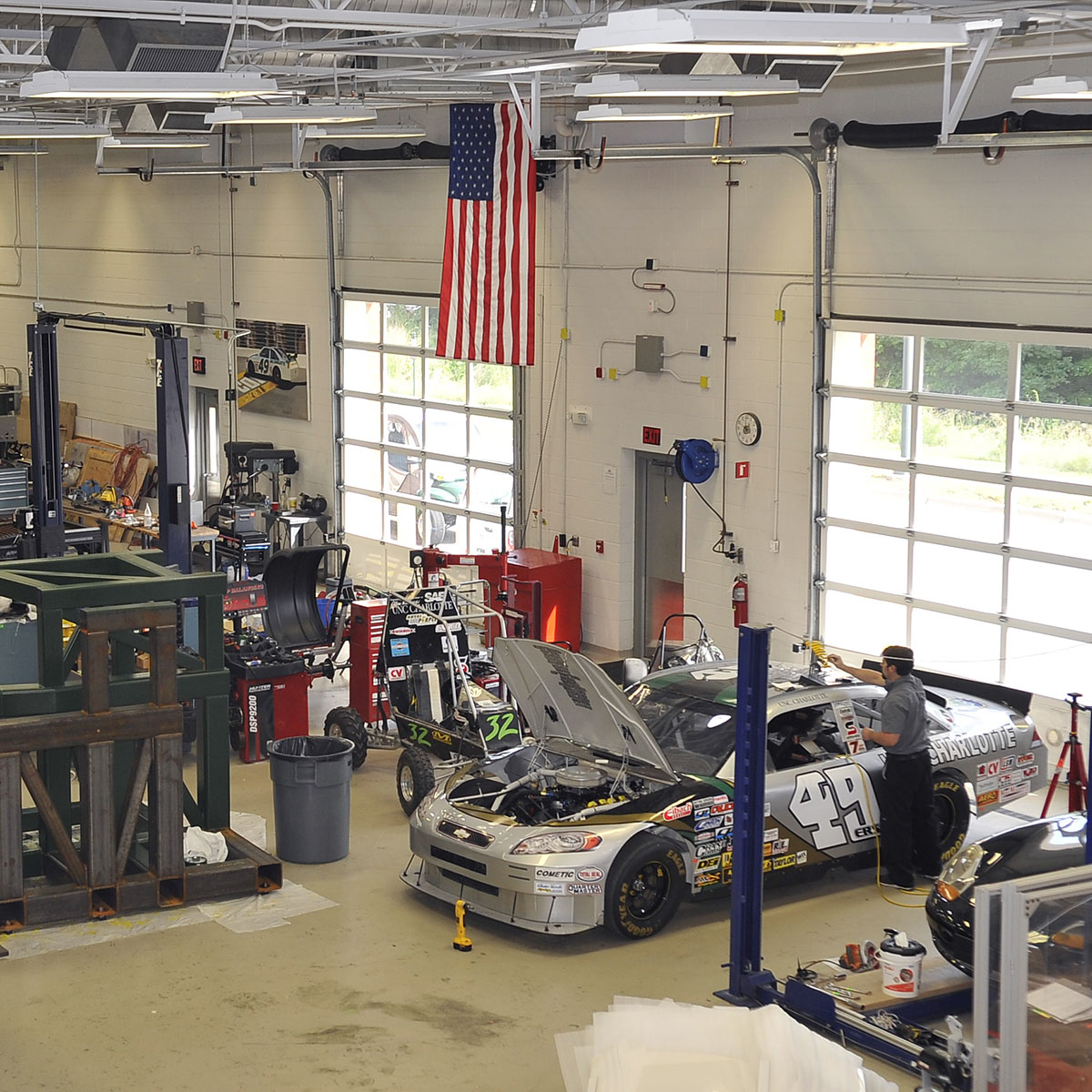
Alumni
With over 18,000 alumni employed across industries, joining the the William States Lee College of Engineering puts you in touch with an extensive network of professionals who are as dedicated to driving the future of engineering as you are. Many of these alumni live and work in the Charlotte region, as well as Atlanta, Washington, D.C. and New York. Our graduates are highly recruited by companies like Duke Energy, Eli Lilly, Freightliner, Hendrick Motorsports, Honda, Ingersoll-Rand, NAVAIR, NC-DOT, Trane Technologies, and Siemens.

Excellence In Research
Researchers in the William States Lee College of Engineering are intentionally recognized, including NSF CAREER Awards, Fulbright, NIST Flemming and more. Our interdisciplinary research centers range from Precision Metrology, to Energy Production and Infrastructure, to Battery Complexity, Autonomous Vehicles and Research (BATT CAVE).
Top Regional Employers









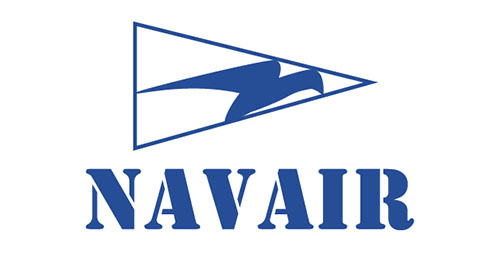
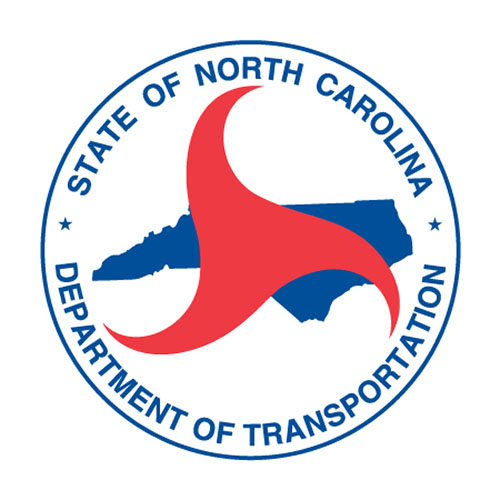

North Carolina Resilience
Alumni Across the Carolinas
UNC Charlotte alumni live, work, teach and support communities throughout the state.

- Asheville, NC
- Charlotte, NC
- Concord, NC
- Durham, NC
- Fayetteville, NC
- Greensboro, NC
- Greenville, NC
- Jacksonville, NC
- Raleigh, NC
- Rocky Mount, NC
- Wilmington, NC
- Winston-Salem, NC
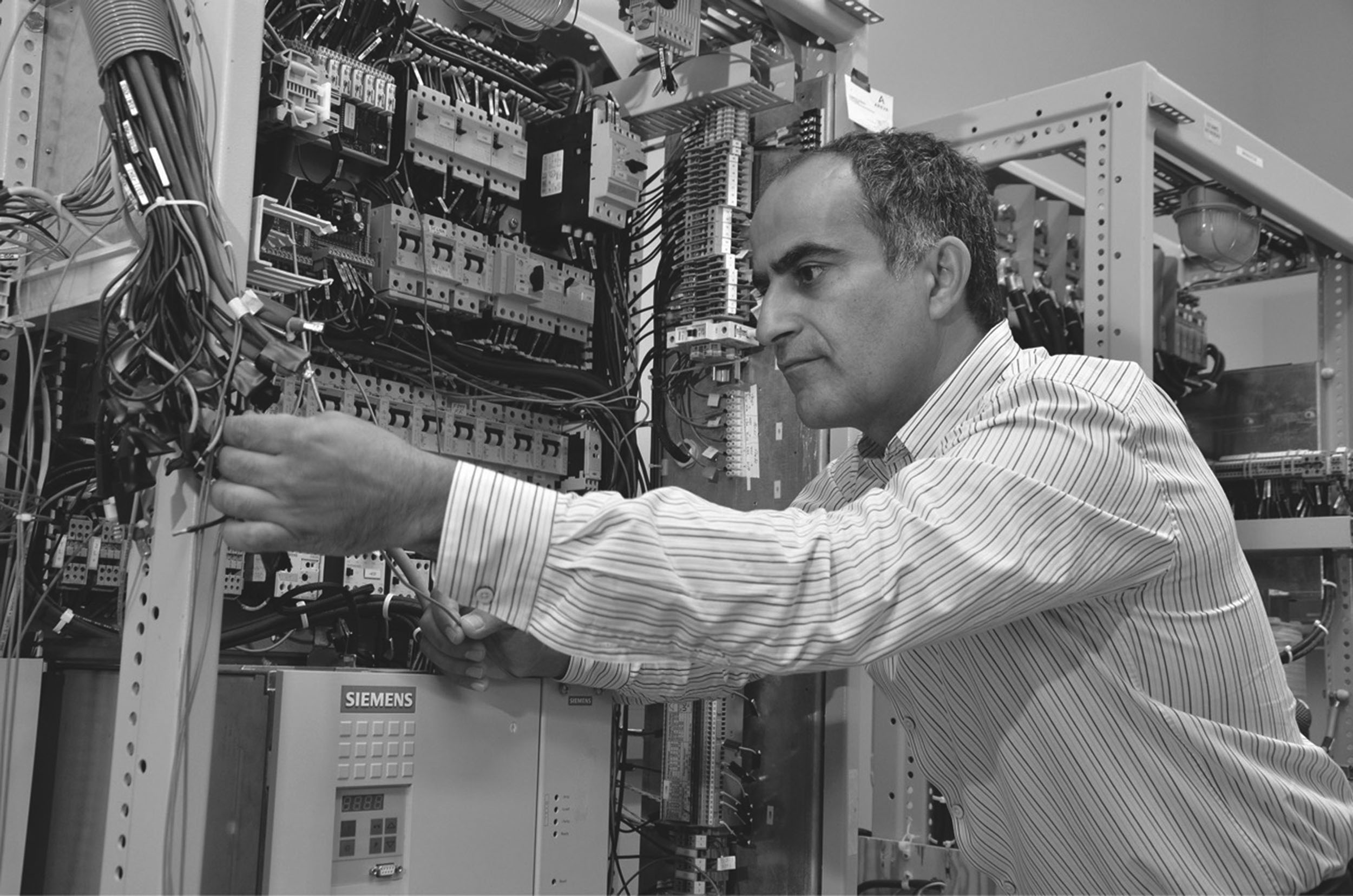
Ready To Build The Future?
Take the first step and contact the William States Lee College of Engineering and enroll in one of North Carolina’s top engineering programs.

